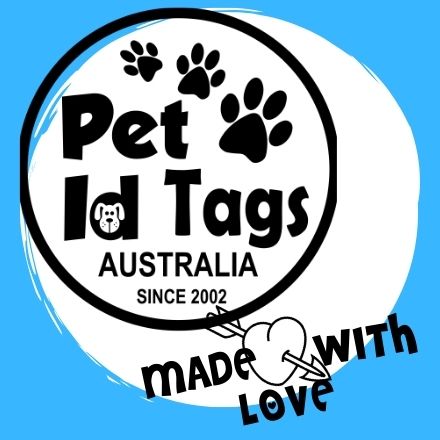*Introduction*
When it comes to our furry friends, their safety and well-being are our utmost priorities. One aspect of pet care that often goes unnoticed is the importance of pet tags for dogs. These small identification tags not only provide essential information about our beloved companions, but they also play a vital role in ensuring their safety. In this article, we will delve into the significance of pet tags, explore the various types available, and shed light on the importance of investing in a quality tag for your canine companion.
**Why are pet tags crucial for dogs?**
Pet tags for dogs are more than just stylish accessories; they are essential for the safety and identification of our beloved companions. Here are the key reasons why every dog owner should consider investing in a high-quality pet tag:
1. **Identification and Contact Information**: A pet tag typically includes the dog's name and the owner's contact information, such as a phone number or address. In the unfortunate event that your furry friend gets lost, these tags serve as a crucial means of identification, increasing the chances of a safe return home.
2. **Emergency Information**: Many pet tags also allow the inclusion of vital health information, such as allergies, medical conditions, or the need for regular medication. This information can be life-saving in emergencies, enabling prompt and accurate treatment for your dog.
3. **Legal Requirements**: In many jurisdictions, it is a legal requirement for dogs to wear identification tags when in public spaces. Compliance with these regulations is not only essential to avoid penalties but also demonstrates responsible dog ownership.
**Types of pet tags for dogs**
Pet tags come in various shapes, sizes, and materials. It's crucial to choose a tag that suits your dog's needs while ensuring it remains secure and durable. Here are some common types of pet tags available:
1. **Metal Tags**: Metal tags, typically made of stainless steel or aluminum, are popular choices due to their durability. They can withstand daily wear and tear and are resistant to rust or fading, ensuring a long-lasting identification solution for your furry friend.
2. **QR Code Tags**: These innovative tags feature a QR code that can be scanned using a smartphone. When scanned, the code provides instant access to your dog's information, including contact details and medical records. QR code tags offer a convenient and secure way to store extensive information without compromising tag size or aesthetics.
3. **Reflective Tags**: If you often take your dog for walks during low-light conditions, reflective tags are a fantastic option. These tags contain reflective material that enhances visibility, making your dog more visible to drivers and pedestrians, thus reducing the risk of accidents.
4. **Fashion Tags**: Fashion-forward pet owners can enjoy the benefits of identification while also adding a stylish touch to their dog's collar. Fashion tags come in an array of designs, colors, and patterns, allowing you to express your dog's unique personality while ensuring their safety.
**Investing in a quality pet tag**
When it comes to purchasing a pet tag for your dog, it is crucial to prioritize quality. Consider the following factors to ensure you invest in a reliable and effective tag:
1. **Durability**: Choose a tag made from high-quality materials that can withstand your dog's active lifestyle. It should be resistant to scratching, water damage, or fading to ensure the tag remains legible and intact over time.
2. **Ease of Use**: Opt for a tag that can be easily attached to your dog's collar without causing discomfort. Look for tags that come with secure attachment options such as split rings or lobster clasps.
3. **Visible and Legible**: Ensure the tag has clear and easily readable engraving or print. This ensures that anyone who comes across your lost dog can read the information promptly and accurately.
4. **Size and Weight**: Consider your dog's size and comfort when choosing a tag. Select a tag that is neither too large nor too heavy, as it may cause discomfort or hinder your dog's movements.
**Conclusion**
Pet tags for dogs serve as an essential aspect of their safety and identification. These small yet significant accessories provide crucial information, increase the chances of a lost dog's safe return, and comply with legal requirements in many jurisdictions. By investing in a quality pet tag that suits your dog's needs and lifestyle, you ensure their safety while adding a touch of personalization to their collar.
**Frequently Asked Questions**
1. **Q: How do I attach a pet tag to my dog's collar?**
A: Most pet tags come with split rings or lobster clasps for easy attachment. Simply thread the ring or clasp through the collar's D-ring and secure the tag in place.
2. **Q: Can I include multiple contact numbers on the tag?**
A: It is recommended to include at least one contact number to avoid overcrowding the tag. However, you can engrave additional numbers on the back of the tag for extra convenience.
3. **Q: Are pet tags suitable for all dog sizes?**
A: Yes, pet tags are available in different sizes to accommodate various dog breeds and sizes. Ensure you choose a tag that is appropriate for your dog's weight and collar width.
4. **Q: How often should I replace my dog's tag?**
A: It is recommended to regularly check your dog's tag for any signs of wear or fading. If the tag becomes illegible or damaged, it is time to replace it to maintain its effectiveness.
5. **Q: Can I use a dog tag for other pets, such as cats or rabbits?**
A: Though pet tags are commonly associated with dogs, they can also be used for other pets such as cats, rabbits, or even small rodents. Ensure the tag is securely attached and contains the necessary information specific to each pet.



